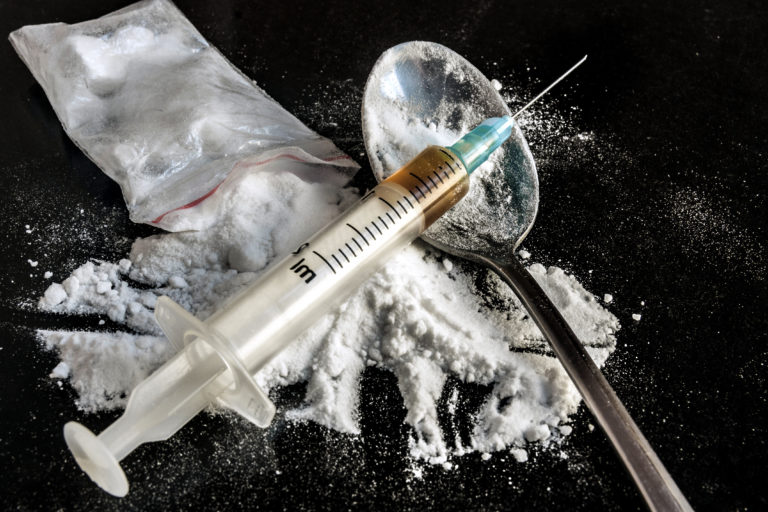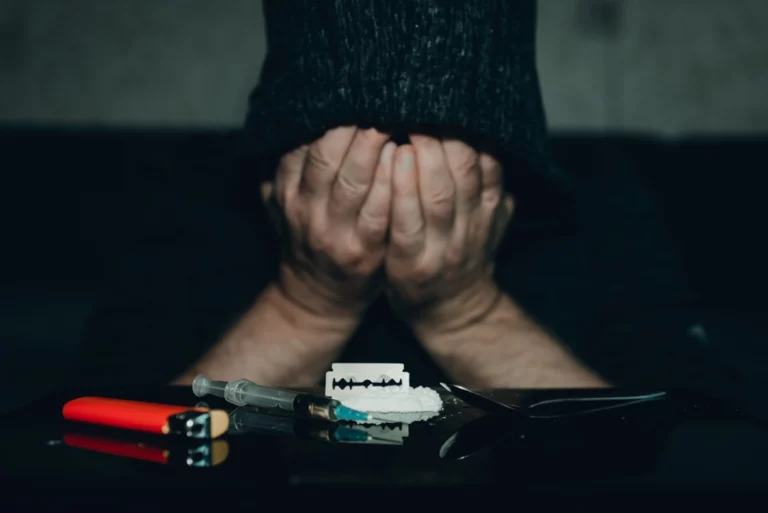Addiction is a complex disease that impacts not only the individual but their entire family. During detoxification, the family’s role becomes vital in supporting the individual’s journey towards sobriety. Understanding family roles in addiction can significantly enhance the support provided during this critical phase.
Let’s explore the dynamics of the family roles in addiction and how it contributes to successful detoxification and long-term recovery.

Understanding Family Roles in Addiction
Family roles in addiction refer to the various roles and behaviors family members adopt in response to a loved one’s substance use disorder. These roles can significantly influence family dynamics, interpersonal relationships, and the overall success of the recovery process.
Often, these roles emerge as coping mechanisms to manage the stress, chaos, and emotional turmoil that addiction brings into the family system. While these roles may initially serve as a way to maintain some sense of stability, they can inadvertently enable the addictive behavior or create additional challenges for both the individual struggling with addiction and the family as a whole.
What Are Family Roles in Addiction?
Family roles in addiction often develop as coping mechanisms to deal with the stress and dysfunction that addiction brings into the household. Common roles include:
- The Enabler: This person often tries to protect the addicted individual from the consequences of their actions, thereby unintentionally allowing the addiction to continue.
- The Hero: Typically the perfectionist, who strives to bring respect to the family and distracts from the chaos created by addiction.
- The Scapegoat: The family member who acts out negatively, drawing attention from the addicted member’s issues.
- The Lost Child: A member who withdraws, preferring to stay out of conflicts and remain invisible.
- The Mascot: Often uses humor or mischief to alleviate tensions within the family dynamic.
How These Family Roles in Addiction Impact Recovery
Understanding each of the family roles in addiction within the system is crucial, as it sheds light on how family dynamics can either hinder or support the recovery process.
Addiction is often described as a “family disease” because it affects not only the individual struggling with substance use but also everyone around them. Each family member’s response to the addiction—whether as the enabler, hero, scapegoat, lost child, or mascot—plays a significant role in shaping the environment in which recovery takes place.
By recognizing these family roles in addiction, families can gain insight into the patterns of behavior that may be perpetuating the cycle of addiction and take steps to break free from them.
For instance, when family members become aware of enabling behaviors, they can learn to set healthier boundaries and stop shielding their loved one from the consequences of their actions. This shift can be challenging, as it often requires confronting feelings of guilt or fear, but it is essential for creating an environment that encourages accountability and self-reflection.
Similarly, understanding the hero’s tendency to overcompensate for the family’s dysfunction can help them prioritize their own well-being and seek support rather than trying to “fix” everything on their own.

Family Support During Detox
Detox is the first step toward recovery, where the body clears itself of substances. The family roles in addiction can provide added support during this phase is crucial for success.
How Can Family Support Help During Detox?
- Emotional Encouragement: Positive reinforcement from family members can boost morale and motivation, helping maintain commitment to the detox process.
- Creating a Safe Environment: A stable and supportive home environment reduces stress and temptation, aiding successful detoxification.
- Setting Healthy Boundaries: Clear and compassionate boundaries help manage your loved one’s recovery expectations while ensuring the family’s well-being.
Practical Ways to Provide Support
- Participate in Family Therapy: Family therapy sessions can clarify roles, improve communication, and build a unified approach to recovery.
- Educate Yourself: Understanding addiction helps reduce stigma and increases empathy towards the recovering individual.
- Be Patient and Nonjudgmental: Recovery is a long and challenging journey. Continued support can significantly impact long-term success.
How Helpful Family Roles In Addiction Can Bring About Lasting Recovery
When a family member struggles with addiction, the entire family system is affected. However, when family members adopt healthy and supportive roles, they can play a transformative role in their loved one’s recovery journey. Helpful family roles foster a positive environment that encourages accountability, emotional healing, and long-term sobriety.
By understanding and embracing these helpful family roles in addiction, families can break the cycle of dysfunction and create a foundation of support that benefits everyone involved. Below are the key benefits of helpful family roles in addiction and how they can aid a family member in battling addiction.
1. Encouraging Accountability and Responsibility
Helpful family roles in addiction promote accountability, which is essential for recovery. By setting clear boundaries and avoiding enabling behaviors, family members can encourage their loved one to take responsibility for their actions and commit to change.
- Examples of supportive actions:
- Setting clear boundaries around substance use (e.g., not allowing drugs or alcohol in the home).
- Refusing to cover up or make excuses for the individual’s behavior.
- Encouraging the individual to seek professional help, such as therapy or rehab.
- Impact on recovery: Accountability helps the individual recognize the consequences of their actions and motivates them to take steps toward sobriety.
2. Providing Emotional Support and Stability
Addiction often creates chaos and emotional turmoil within families. Helpful family roles can restore a sense of stability and provide the emotional support needed for recovery.
- Examples of supportive actions:
- Offering a listening ear without judgment or criticism.
- Expressing love and concern in a calm and constructive manner.
- Creating a safe and nurturing home environment.
- Impact on recovery: Emotional support helps the individual feel valued and understood, reducing feelings of isolation and increasing their willingness to engage in treatment.
3. Reducing Enabling Behaviors
Enabling behaviors, such as providing financial support or shielding the individual from consequences, can perpetuate addiction. Helpful family roles focus on breaking these patterns and fostering independence.
- Examples of supportive actions:
- Refusing to give money that could be used to purchase drugs or alcohol.
- Allowing the individual to face the natural consequences of their actions.
- Encouraging self-sufficiency and personal growth.
- Impact on recovery: Reducing enabling behaviors helps the individual confront the reality of their addiction and take ownership of their recovery journey.
4. Promoting Open Communication
Healthy family roles emphasize open and honest communication, which is crucial for addressing the underlying issues that contribute to addiction.
- Examples of supportive actions:
- Holding family meetings to discuss concerns and progress.
- Using “I” statements to express feelings without blame (e.g., “I feel worried when you come home late”).
- Actively listening to the individual’s perspective and experiences.
- Impact on recovery: Open communication fosters trust and understanding, creating a collaborative environment where the individual feels supported in their efforts to change.

5. Supporting Personal Growth and Healing
Addiction affects not only the individual but also the entire family. Helpful family roles encourage personal growth and healing for everyone involved.
- Examples of supportive actions:
- Participating in family therapy or support groups (e.g., Al-Anon or Nar-Anon).
- Encouraging the individual to explore new hobbies, interests, or career goals.
- Practicing self-care and seeking individual therapy to address personal trauma or stress.
- Impact on recovery: When family members prioritize their own well-being, they model healthy behaviors and create a more positive environment for the individual in recovery.
6. Building a Strong Support Network
Recovery is a long-term process that requires a strong support network. Helpful family roles involve rallying together to provide consistent encouragement and assistance.
- Examples of supportive actions:
- Celebrating milestones and progress in recovery.
- Connecting the individual with community resources, such as support groups or sober activities.
- Offering practical help, such as transportation to therapy or assistance with job searches.
- Impact on recovery: A strong support network reinforces the individual’s commitment to sobriety and provides a safety net during challenging times.
Helpful family roles in addiction are a powerful tool for supporting a loved one’s recovery. By encouraging accountability, providing emotional support, reducing enabling behaviors, promoting open communication, supporting personal growth, and building a strong support network, families can create an environment that fosters healing and long-term sobriety.
While the journey of recovery is not easy, the collective effort of a supportive family can make a profound difference in helping their loved one overcome addiction and rebuild their life.
FAQs About Family Roles and Detox
To better understand how family can influence the detox and recovery process, consider these frequently asked questions:
What Should Families Avoid During Detox?
Avoid behaviors that enable the addiction, such as making excuses for the individual’s behavior or providing substances. Instead, focus on providing support without judgment.
Is Family Therapy Effective in Treating Addiction?
Yes, family therapy can be highly beneficial. It strengthens family bonds, resolves conflicts, and provides tools to support both the recovering individual and the family unit.
How Can Families Maintain Their Well-being During a Loved One’s Detox?
Families should seek support for themselves, whether through therapy, support groups, or self-care practices. Taking care of their emotional needs ensures they can provide sustained support.

Strengthening Family Support in Detox
The journey of recovery can be a daunting experience, but family roles in addiction can be transformed into powerful sources of support. By understanding these roles and adopting healthy approaches, families can significantly improve the detoxification process and lay a foundation for lasting recovery.
Getting expert guidance is pivotal in navigating the complexities of addiction and family dynamics. If you or your loved one is beginning the detox process, reach out to Asheville Detox for professional support and resources. For immediate assistance, call us today and speak with one of our addiction recovery specialists.







